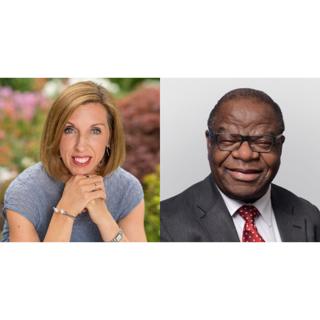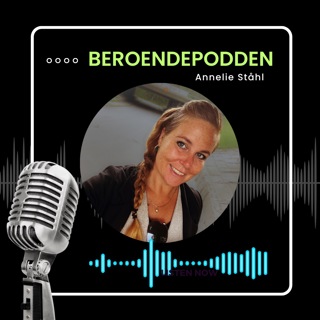
235 - Menopause and brain health: what’s the link?
In this episode Dr Louise is joined by world-renowned neuroscientist Dr Lisa Mosconi, PhD. Dr Lisa is Director of the Alzheimer’s Prevention Clinic and Women’s Brain Initiative at Weill Cornell Medicine in New York and author of bestsellers The XX Brain and Brain Food. Dr Lisa was studying nuclear medicine and neuroscience when her grandmother and her grandmother’s three sisters all developed Alzheimer's. Dr Lisa became interested in the cause of Alzheimer’s and why women are more susceptible. Her research has shown that, rather than a disease of old age, it starts in midlife and menopause potentially plays a part. Dr Lisa discusses her most recent paper, which found that women who took hormones in midlife to treat their menopause symptoms were less likely to develop dementia than those who hadn’t taken oestrogen. Finally, Dr Lisa shares three things to consider about female hormones: Oestrogen, and oestradiol in particular, is the master regulator of women's brains. It really is like saying that oestrogen is to your brain what fuel is for an engine. It keeps your brain running. Endogenous oestrogen (produced within your body) is different from exogenous oestrogen (synthetic). The bioidentical oestradiol is probably the best one to use because it really maps on the same circuits for your own endogenous oestrogen. I would love for all women to be able to make an informed decision about whether or not hormone therapy is a viable option for them. Many women who are eligible for HRT do not go on HRT out of fear and the fear comes from outdated information, mislabelling on some of the packages. Follow Dr Lisa on Instagram @dr_mosconi Click here to find out more about Newson Health
19 Dec 202336min

234 - Breast cancer treatment and HRT
Content advisory: this podcast contains themes of mental health and suicide. Dr Louise is joined by her patient Trudie Jennings in this episode to talk about the complexities around HRT during and after treatment for breast cancer. Trudie describes how she started HRT to successfully manage crippling anxiety and other menopause symptoms and a few months later she was diagnosed with an aggressive breast cancer. NICE guidance states women should stop taking systemic HRT if they are diagnosed with breast cancer. However, after careful discussion with her cancer doctor and nurse, Trudie decided to continue with HRT during her treatment as, for her, the menopause symptoms were more challenging than her cancer treatment. Trudie and Dr Louise discuss shared decision making and informed consent, and how important it is for women with and after breast cancer to be fully informed about potential risks, benefits and uncertainties about HRT following a breast cancer diagnosis so they can make the best decision that is right for them. Trudie’s three tips for women who have had breast cancer and are struggling with their menopause: Know that as a patient you do have choices about whether to start or continue HRT after breast cancer treatment. Speak to your doctors and nurses and be informed so that you can make the right, personalised, decision for yourself. Trudie has found her healthcare professionals in cancer care open and helpful when discussing her need for HRT. You know your own body best, so listen to your body to get the treatment that will be best support you. Contact the Samaritans for 24-hour, confidential support by calling 116 123 or email jo@samaritans.org Click here to find out more about Newson Health
12 Dec 202329min

233 - Gaslighting of genitourinary symptoms of the menopause
This week on the podcast Dr Louise speaks to Dr Ashley Winter, a urologist and sexual medicine specialist, based in Los Angeles. Dr Ashley has seen the transformative effects of vaginal hormones on women – not only those who are menopausal, but also women who experience cyclical symptoms of bladder pain, UTIs and painful sex. She shares her frustration on the situation in the US, where inaccurate and harmful warnings are included in every oestrogen product available, and her hopes of dispelling the fearmongering by talking, looking at the evidence and sharing her clinical experience. Finally, Dr Ashley gives three reasons why women should use vaginal hormones: It's extraordinarily safe. No risk of any cancer or blood clots, 100% safe. It can prevent you from needing so many other unnecessary treatments that don't address root causes, and so you will probably save money. It is not just a vaginal treatment. It is a bladder treatment, a urethral treatment, a vulva treatment. The medication acts locally, but acts locally throughout the pelvis. Follow Ashley on X and Instagram @ashleygwinter
5 Dec 202330min

232 - Gabby Logan: the power of exercising in midlife
This week Dr Louise is joined by broadcaster and former international gymnast, Gabby Logan. Gabby is the host of her own successful podcast The Mid Point where she speaks about midlife challenges, and here she shares her own experiences of the menopause. Gabby reflects on the impact of the menstrual cycle on female athletes and the positive impact of speaking about it and increasing awareness. She shares how exercise is helping her to forge and cement friendships and make time for herself, and how HRT helped her to rekindle her vigour for exercise. Finally, Gabby shares three reasons why we should all be exercising, regardless of our age: It’s future proofing. I want to be active in my 80s, playing golf, going for long walks and getting myself out of a chair without it being a kind of a national incident. So I’m doing things now that are going to help empower me. It’s good for your mental health. In my 20s, I realised somehow that exercise was good for me mentally. I knew that going for a run was about clearing my brain, getting back on track if I'd had a wobbly day or starting the day well. That feeling has grown and I know exercise is vital for mental health. It’s about balance. Think 80/20. If you are going to fall off, have a glass of wine or a gin and tonic at the weekends, don't feel bad about it. The exercise I'm doing will hopefully help to negate some of the toxins I might occasionally put inside me. Follow Gabby on Instagram @gabbylogan
28 Nov 202333min

231 - Getting to the truth around HRT and breast cancer with Dr Avrum Bluming
Leading US oncologist Dr Avrum Bluming joins Dr Louise Newson to talk about the crucial role of oestrogen in women’s health. Despite HRT’s proven benefits in protecting against heart disease, bone fracture and cognitive decline, many women still avoid it over breast cancer fears. It’s been more than 20 years since media headlines about a study called the Women’s Health Initiative linked HRT to an increased risk of breast cancer. In this podcast, Dr Bluming says that in fact we now know oestrogen alone decreases the risk of breast cancer development by 23% and risk of death from breast cancer by 40%. He also disputes the findings of the WHI study that combined progesterone and oestrogen HRT leads to a small increase in breast cancer cases. ‘It is very upsetting when such an influential study continues to misquote their own data,’ says Dr Bluming, who has spent 25 years studying the benefits and risks of HRT in breast cancer survivors. Dr Bluming points out that oestrogen used to be a treatment for breast cancer before chemotherapy was developed, and that rates of breast cancer increase as we age, despite the fact our oestrogen levels fall as we get older. You can read about Dr Bluming's latest paper here, and listen to an earlier podcast Dr Newson and Dr Bluming recorded here.
21 Nov 202336min

230 - Confronting my menopause fears
Raquela Mosquera joins Dr Louise Newson in this episode to talk about the turmoil, anxiety and unexplained bleeding she went through during her menopause. Raquela is the mum of Joe Wicks, the fitness coach who kept the country moving during lockdown and who has also appeared on Dr Louise’s podcast. Joe put Raquela in touch with Dr Louise after she confided her worries over her symptoms. The anxiety, brain fog and isolation led to Raquela leaving the job she loved, but adjusting her HRT has transformed her life. Listen to Raquela and Dr Louise share tips about how to get the right HRT dose and type to suit you to get the maximum benefit. Raquela’s three tips: Educate yourself on the symptoms of the menopause and right down all your symptoms before seeing your GP, including when these symptoms started and what can make them worse. Be a menopause warrior. Chat about your experience to friends and family to reduce the stigma around the menopause. Don’t be scared of HRT. Go to your GP and talk about whether it could work for you before making any decisions. Listen to Dr Louise’s podcast with Joe Wicks here
14 Nov 202330min

229 - Testosterone: beyond libido
Testosterone is an important sex hormone for both men and women (although women have much lower levels) produced by your ovaries and adrenal glands and declines during the menopause. When it comes to menopause, testosterone is a hormone that can be misunderstood, and many women struggle to access testosterone treatment on the NHS. Here Dr Louise and her Newson Health colleague, GP and Menopause Specialist Dr Catherine Coward, talk about how it can be a valuable addition to HRT for women around the menopause and beyond. NICE menopause guidance recommends testosterone can be beneficial for women experiencing low libido where HRT alone hasn’t helped. Yet Dr Louise and Dr Catherine talk how in their clinical experience, testosterone benefits can extend beyond sex drive-related symptoms, with patients reporting improvements including having more energy, and reduced brain fog and anxiety. Click here for more about Dr Catherine.
7 Nov 202333min

228 - Exercise ‘snacks’ and menopause with Lavina Mehta MBE
Personal trainer, wellness coach and mum-of-three Lavina Mehta MBE joins Dr Louise in this week’s episode to share her advice on boosting your activity levels during the perimenopause and menopause. As a British Asian, Lavina is passionate about ensuring her message of the benefits of exercise reaches all communities, and highlights how exercise can treat, prevent and reduce the risks of chronic diseases like Alzheimer’s, diabetes and heart disease. Lavina encourages busy women to begin ‘exercise snacks’, which are short bursts of activity that can be slotted into full days. Finally, Lavina shares her three easy wins to improve future health: Start strength training and prioritise building your muscle mass over losing weight. Start off small with exercise ‘snacks’, which means adding little bite-sized chunks of exercise throughout your day. It all counts and it is never too late to start. Keep talking, keep learning, keep educating yourself and keep sharing your journey with everyone around you. For more about Lavina, visit her website and follow her on Instagram @feelgoodwithlavina, plus feel good workouts and exercise snacks on her YouTube channel @feelgoodwithlavina.
31 Okt 202333min






















